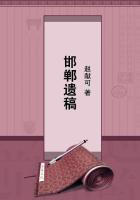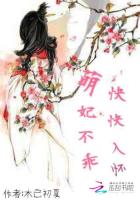The interpretation which I have adopted of the custom of beating the human scapegoat with certain plants is supported by many analogies. Thus among the Kai of German New Guinea, when a man wishes to make his banana shoots bear fruit quickly, he beats them with a stick cut from a banana-tree which has already borne fruit. Here it is obvious that fruitfulness is believed to inhere in a stick cut from a fruitful tree and to be imparted by contact to the young banana plants. Similarly in New Caledonia a man will beat his taro plants lightly with a branch, saying as he does so, I beat this taro that it may grow, after which he plants the branch in the ground at the end of the field. Among the Indians of Brazil at the mouth of the Amazon, when a man wishes to increase the size of his generative organ, he strikes it with the fruit of a white aquatic plant called aninga, which grows luxuriantly on the banks of the river. The fruit, which is inedible, resembles a banana, and is clearly chosen for this purpose on account of its shape. The ceremony should be performed three days before or after the new moon. In the county of Bekes, in Hungary, barren women are fertilised by being struck with a stick which has first been used to separate pairing dogs. Here a fertilising virtue is clearly supposed to be inherent in the stick and to be conveyed by contact to the women. The Toradjas of Central Celebes think that the plant Dracaena terminalis has a strong soul, because when it is lopped, it soon grows up again. Hence when a man is ill, his friends will sometimes beat him on the crown of the head with Dracaena leaves in order to strengthen his weak soul with the strong soul of the plant.
These analogies, accordingly, support the interpretation which, following my predecessors W. Mannhardt and Mr. W. R. Paton, I have given of the beating inflicted on the human victims at the Greek harvest festival of the Thargelia.
That beating, being administered to the generative organs of the victims by fresh green plants and branches, is most naturally explained as a charm to increase the reproductive energies of the men or women either by communicating to them the fruitfulness of the plants and branches, or by ridding them of the maleficent influences; and this interpretation is confirmed by the observation that the two victims represented the two ***es, one of them standing for the men in general and the other for the women. The season of the year when the ceremony was performed, namely the time of the corn harvest, tallies well with the theory that the rite had an agricultural significance. Further, that it was above all intended to fertilise the fig-trees is strongly suggested by the strings of black and white figs which were hung round the necks of the victims, as well as by the blows which were given their genital organs with the branches of a wild fig-tree; since this procedure closely resembles the procedure which ancient and modern husbandmen in Greek lands have regularly resorted to for the purpose of actually fertilising their fig-trees. When we remember what an important part the artificial fertilisation of the date palm-tree appears to have played of old not only in the husbandry but in the religion of Mesopotamia, there seems no reason to doubt that the artificial fertilisation of the fig-tree may in like manner have vindicated for itself a place in the solemn ritual of Greek religion.
If these considerations are just, we must apparently conclude that while the human victims at the Thargelia certainly appear in later classical times to have figured chiefly as public scapegoats, who carried away with them the sins, misfortunes, and sorrows of the whole people, at an earlier time they may have been looked on as embodiments of vegetation, perhaps of the corn but particularly of the fig-trees; and that the beating which they received and the death which they died were intended primarily to brace and refresh the powers of vegetation then beginning to droop and languish under the torrid heat of the Greek summer.
The view here taken of the Greek scapegoat, if it is correct, obviates an objection which might otherwise be brought against the main argument of this book. To the theory that the priest of Aricia was slain as a representative of the spirit of the grove, it might have been objected that such a custom has no analogy in classical antiquity. But reasons have now been given for believing that the human being periodically and occasionally slain by the Asiatic Greeks was regularly treated as an embodiment of a divinity of vegetation. Probably the persons whom the Athenians kept to be sacrificed were similarly treated as divine. That they were social outcasts did not matter. On the primitive view a man is not chosen to be the mouth-piece or embodiment of a god on account of his high moral qualities or social rank. The divine afflatus descends equally on the good and the bad, the lofty and the lowly. If then the civilised Greeks of Asia and Athens habitually sacrificed men whom they regarded as incarnate gods, there can be no inherent improbability in the supposition that at the dawn of history a similar custom was observed by the semibarbarous Latins in the Arician Grove.
But to clinch the argument, it is clearly desirable to prove that the custom of putting to death a human representative of a god was known and practised in ancient Italy elsewhere than in the Arician Grove. This proof I now propose to adduce.
3. The Roman Saturnalia













